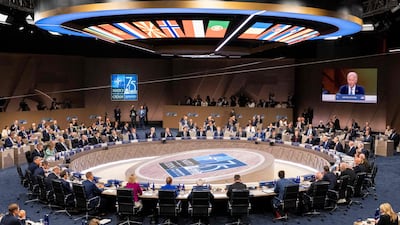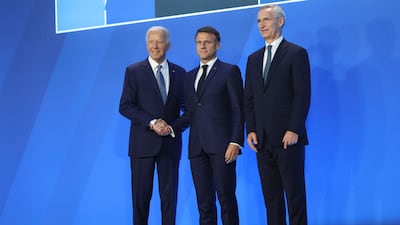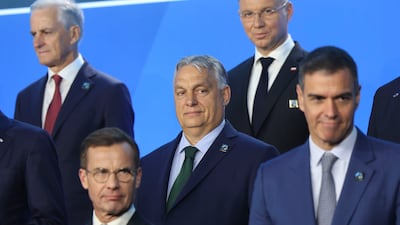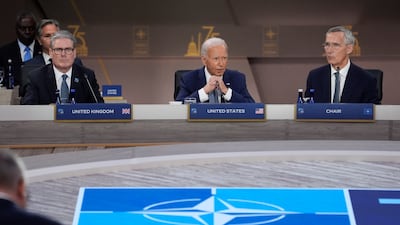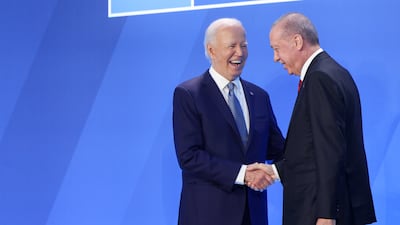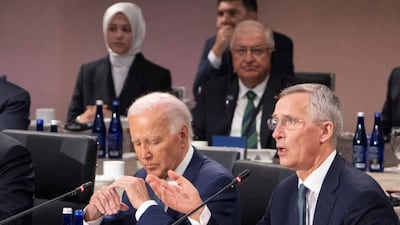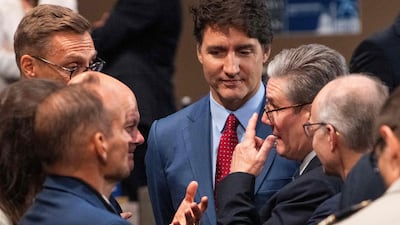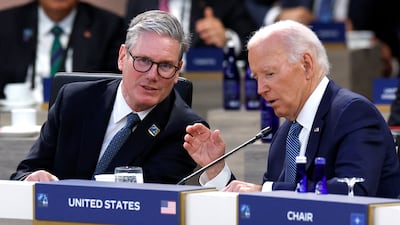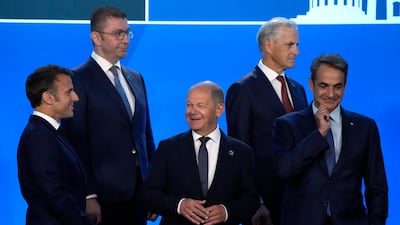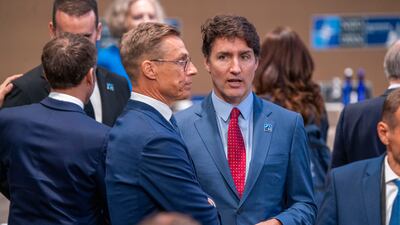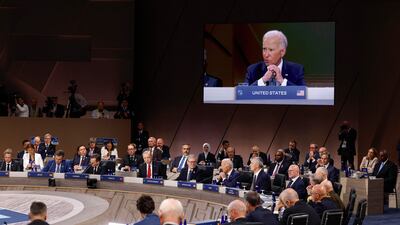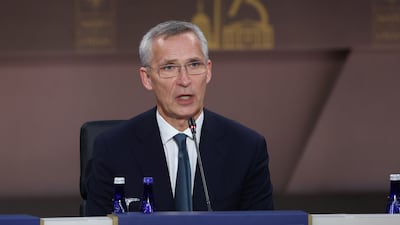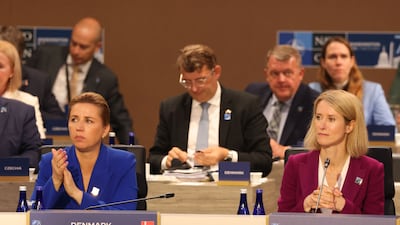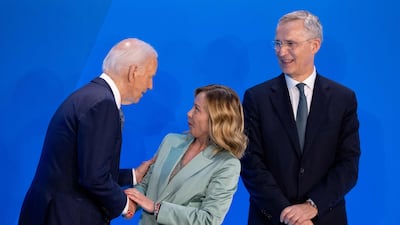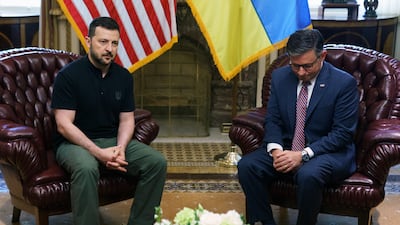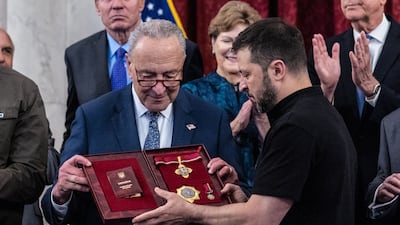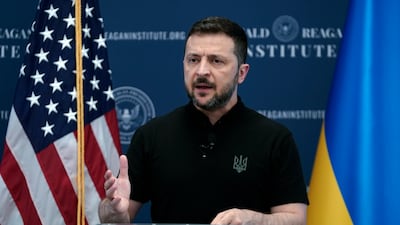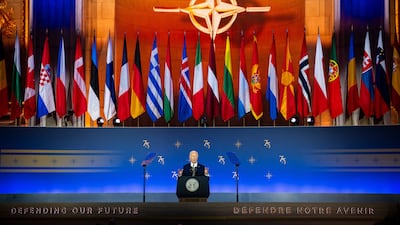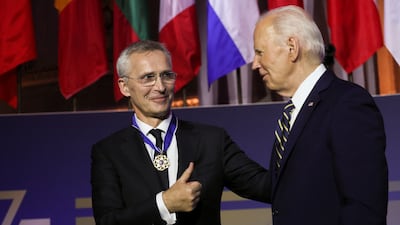Britain's Prime Minister Keir Starmer made his first appearance on the international stage on Wednesday, saying he wanted to reset relations with world leaders and reaffirm the Labour government's continuing support for Kyiv.
Fresh from his landslide election win last week, Mr Starmer met Ukrainian President Volodymyr Zelenskyy on the sidelines of the Nato summit in Washington.
“I just had a very good meeting with President Zelenskyy where … we made it clear that, as far as the UK is concerned, the change in government makes no difference to the support we will provide,” Mr Starmer told reporters.
It was an opportunity "to reinforce, in a sense as a message to [Russian President Vladimir] Putin, the resolve of Nato, bigger now than it's ever been, more united than it's ever been and absolutely clear-eyed about the threat of Russian aggression", the Prime Minister added.
The focus of the Nato summit is support to Ukraine, though Mr Starmer's appearance has generated considerable buzz, while US President Joe Biden's mental and physical condition is also attracting attention.
Mr Starmer also met German Chancellor Olaf Scholz, who commended the Prime Minister's pledge to reset ties with Europe.
Relations had fallen to a low ebb under 14 years of Euro-sceptical Conservative rule capped by Britain's departure from the EU.
The new British leader said his talks with world leaders were "an opportunity to make sure that those relationships are reset, for me to be able to say that our position on the world stage - leading on issues like defence and security, on climate change, and on energy - are so important".
He added that the Nato summit “is an opportunity for our Labour government to reaffirm our commitment” to the alliance.
Mr Starmer later met Mr Biden at the White House, where the two exchanged pleasantries about England making it to the Euro 2024 final and spoke about the two countries' "special relationship".
The British leader said the relationship was "so important", adding that it was "forged in difficult circumstances, endured for so long and is stronger now than ever".

Ian Lesser, a distinguished fellow at the German Marshall Fund, said that for all the political turmoil in the UK in recent years, Britain has been forward leaning in support of Ukraine.
"Continuity on this front has special meaning at a summit driven largely by the war in Ukraine and imperative of mobilising stronger allied military support," Mr Lesser told The National.
"The UK has also been among the bigger defence spenders in Europe – critical in terms of the transatlantic burden sharing debate."
Mr Scholz and Mr Starmer also discussed the need for enhanced defence co-operation in Europe to act as a deterrent for aggression by "hostile actors".
They agreed to "strike a deep UK-Germany defence agreement ... without delay", according to a Downing Street readout.
Britain's new Foreign Secretary, David Lammy, wrote an article on Sunday saying the new government would “reset relations with Europe as a reliable partner, a dependable ally and a good neighbour”.
This week's Nato summit is underscoring what US and European officials have described as Ukraine's "irreversible" path to Nato membership.
But the alliance's mutual defence pact means Ukraine will not join while it is at open war with Russia, as that could result in all-out conflict between the bloc and Mr Putin's forces.
Mr Starmer says the UK is committed to increasing its defence spending to spending 2.5 per cent of gross domestic product.
But he refused to guarantee that he will meet his flagship commitment on defence spending within his first term in office, despite the "cast iron" promise to get there.
Speaking to reporters, he said: "We are committed to the 2.5 per cent as I have said before the election and I say again after the election.
"That is obviously subject to our fiscal rules, but the commitment is there."


